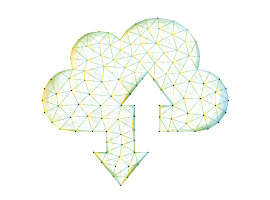- Program
- Program
- Program
- Program
- Program
- Schedule
- Business & Company Culture
- Cloud Platforms
- DevSecOps & Cloud Security
- Containerization & the Kubernetes Ecosystem
- Continuous Integration & Continuous Delivery
- System Design & Software Architecture
- Observability & Service Mesh
- Kubernetes Bootcamp
- DevOps Transformation Day
- Speakers
- More Program
- Program
- Tickets
- Tickets
- Tickets
- Tickets
- Tickets
- Tickets
- Conferences
- Formate
- Inhouse
- Blog
- Info
- DevOpsCon
- Downloads
- Sponsors & Expo
- Info
- Camps
- Editions
- Jetzt anmelden
- Register Now
- Register now
- Register Now
- Register now
- Register now
- Register Now
May
2,
2023
Kubernetes is a container orchestrator that has rapidly gained popularity among developers and IT operations teams alike. While it started out as a tool to manage containerized applications, it has evolved into much more than that — Kubernetes is a microcosmos and it is “eating the world.”
Apr
4,
2023
This article discusses the challenges and pain points that may arise when migrating a legacy software application to the cloud from the ground up. I had the pleasure of being a part of such an adventure two years ago. The goal was to run a successful proof of concept by...
Jan
31,
2023
The growing market share of cloud systems clearly shows that an increasing number of software systems are being operated in the cloud. As a prerequisite, more and more developments are cloud-native. The term Dev(Ops) Experience Cloud-Native refers to "development for the cloud" and "deployment in the cloud." Sometimes it's difficult...
Mar
31,
2021
Part 3: Data on Kubernetes Served with Love <br/>
What can we accomplish as a community when we work together? If the Apache Cassandra community is any proof, quite a bit. We’ve built a pretty amazing database over the past 10+ years. We’ve also helped each other when learning how to...
Mar
10,
2021
Managing data at scale is a big challenge. Aside from simply having lots of data, we have to be able to use it effectively over time. How we index our data can make it easier to use, but that indexing approach can evolve over time based on what we want...
Jan
18,
2021
The history of endpoint security has gone through many stages. Yet, in 2021, our tools and processes are no longer necessarily appropriate to the threats. A new generation is needed to address current threats. One possible solution is XDR - Extended Detection and Response.
Dec
7,
2020
Over the past twenty years, there have been several big trends in distributed computing. Today, we have more developers using microservices designs to decompose applications into smaller and more manageable units. Apache Cassandra was built for cloud data and is now becoming the choice of developers for cloud native applications.
Stay Tuned:
Explore other Tracks
Business & Company Culture
Navigate the Human Side of DevOps.
Cloud Platforms
Scale Your Cloud Apps with Terraform, Serverless & beyond.
DevSecOps & Cloud Security
Secure DevOps from code to cloud with shift-left practices and AI.
Containerization & the Kubernetes ecosystem
Kubernetes: from fundamentals to advanced edge deployments.
Continuous Integration & Continuous Delivery
Automate Your Processes: Build High-Performance CI/CD Pipelines.
System Design & Software Architecture
Build scalable microservices with cutting-edge tools and patterns.
Observability & Service Mesh
Discover how tools like Grafana, Cilium, and OpenTelemetry can transform app data.
GET DEVOPS NEWS AND UPDATES!
Join our community and stay up to date!
GET DEVOPS NEWS AND UPDATES!
Join our community and stay up to date!
GET DEVOPS NEWS AND UPDATES!
Join our community and stay up to date!
Unlock Exclusive Discounts & Free Recordings Today

Register for a free devmio Fullstack membership to secure:
 6 months access to session recordings.
6 months access to session recordings.
 $100 discounts on DevOpsCon New York tickets.
$100 discounts on DevOpsCon New York tickets.
 1 year unlimited access to devmio - the conference platform.
1 year unlimited access to devmio - the conference platform.
Sign Up today and get a taste of DevOpsCon New York! Free for a limited time.
GET DEVOPS NEWS AND UPDATES!
Join our community and stay up to date!
GET DEVOPS NEWS AND UPDATES!
Join our community and stay up to date!
GET DEVOPS NEWS AND UPDATES!
Join our community and stay up to date!






